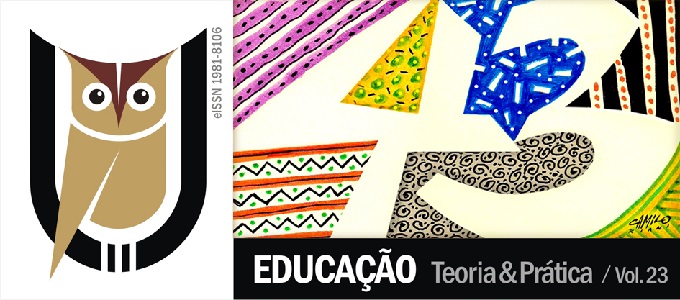Teachers training in the educational web of São Paulo State: between 1983 and 2006: a critical analysis
DOI:
https://doi.org/10.18675/1981-8106.vol23.n43.p76-92Keywords:
Educational Policy. Neoliberalism. Training.Abstract
In this article it was examined the policies of teachers training in the state of São Paulo between 1983 and 2006. The option for this historical view is justified by the return of democratically elected governments and also by the suspicion that the training activities implemented during this period continued to influence substantially the current initiatives. The proposals for teacher training, even if they are isolated, fall in the middle of a larger policy, that means, they are having a specific intention. The compilation and critical analysis of studies that have focused on the service teacher training policies implemented by the State department of Education of São Paulo (SEE / SP) allowed the division of period two cycles. The first (1983-1994) was marked by the search for alternatives to break the paradigms imposed by the previous dictatorial governments, there have been marked by attempts to decentralize the process. And second (1995-2006) was characterized by the frequency of policies aligned with the neoliberal ideas, conjugated in the spreading of initiatives and agreements and partnerships with various institutions.Downloads
Additional Files
Published
How to Cite
Issue
Section
License
Authors who publish in this journal agree to the following terms:
a) Authors assign copyright to the journal, with the work simultaneously licensed under the Creative Commons Attribution License that allows sharing of the work with acknowledgment of authorship and publication in this journal.
b) The policy adopted by the Editorial Committee is to assign copyright only after a period of 30 months from the date of publication of the article. After this time, authors interested in publishing the same text in another work must send a letter to the Editorial Committee requesting the release of the assignment of copyright and wait for a response.
c) This journal provides public access to all its content, since this allows greater visibility and reach of published articles and reviews. For more information on this approach, visit the Public Knowledge Project, a project that developed this system to improve the academic and public quality of research, by distributing OJS as well as other software to support the public access publication system to academic sources. The names and email addresses on this website will be used exclusively for the purposes of the journal and will not be available for other purposes. This journal provides open any other party  This work is licensed under a Creative Commons License
This work is licensed under a Creative Commons License











